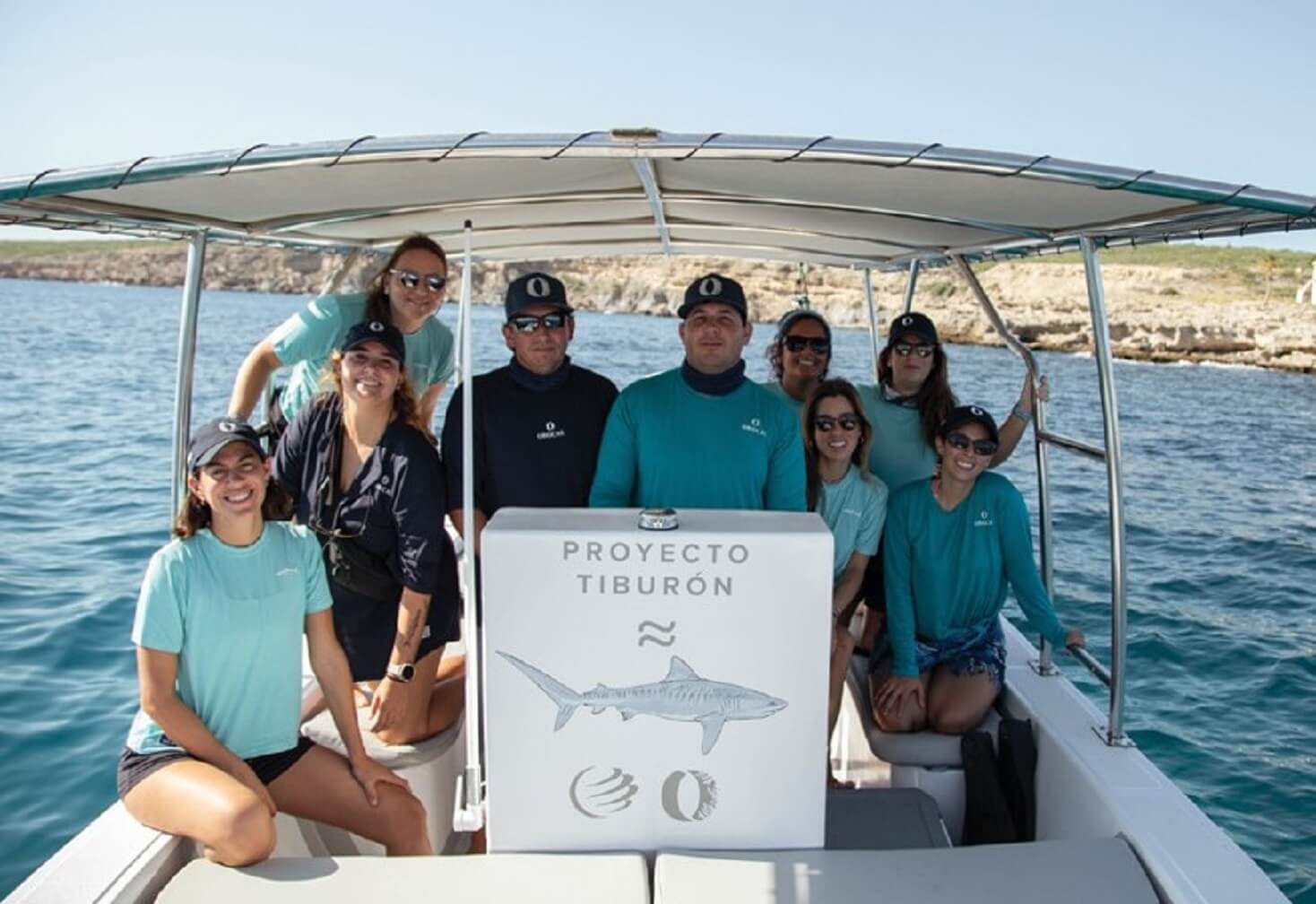ORGCAS is a non-profit organization founded by women with diverse expertise, united by their passion for the ocean and dedication to its preservation. They are currently conducting programs to create change and provide solutions to issues in the ecosystem, its coasts, and its communities, working with four primary conservation strategies: science, education, tourism, and communication.
The story of ORGCAS began at a restaurant table in La Paz. By coincidence, the future team members were all there that night. Although they did not know each other, they shared a lot in common, and without knowing it, a great journey awaited them together.
“We all had our story with the ocean, but that night in La Paz,” said director Porfiria Gómez, “each of us, from different backgrounds, decided to live and build our careers around the ocean, its protection, and its care.”
After a long conversation and reflection, they decided to join forces and start working together to make their dreams come true. Without knowing each other but trusting in their shared values and passion, they embarked on a journey to be stewards of the seas, pooling their efforts in their beloved Mexico.
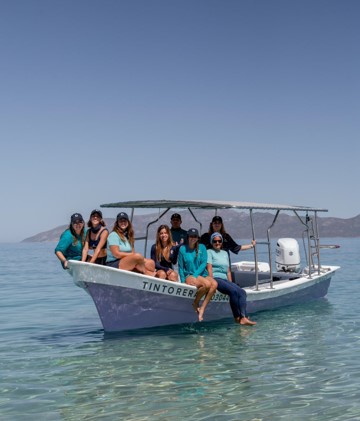
“We realized soon that we needed more hands; the ocean needs so much help, so more people came on board, and before long, a team of women from different professions was formed, all with the passion and enthusiasm to act on behalf of the sea, its coasts, and its people,” Gómez explained.
One of ORGCAS’ main projects is Proyecto Tiburón, which is dedicated to generating more sustainable economic activities for shark fishermen in the Agua Amarga community. The first phase involves training fishermen to provide services to tourists, supporting them with planning, materials, equipment, and necessary training. As part of the ongoing Project Tiburón, they have worked continuously with the fishermen, implementing a model of conscious tourism that not only aims to offer a sustainable economic alternative but also seeks to improve the fishermen’s quality of life.
Proyecto Tiburón aims to be a replicable platform for economic transition in other localities. By building a solid and adaptable platform, the organization has presented a successful model for implementing sustainable solutions that could be applied globally. With the willingness to adapt the experience and knowledge honed by ORGCAS to the specific needs of individual communities, marine conservation and economic development can be shared for the benefit of all.
They aim to extend their efforts further by providing opportunities for involvement through both tourism expeditions and volunteer programs. Designed to vary in terms of duration, focus areas, and prerequisite experience, these programs are developed to engage a diverse audience through inclusive and accessible spaces. By offering a variety of openings, they hope that a wider audience will witness and engage with marine conservation going forward.
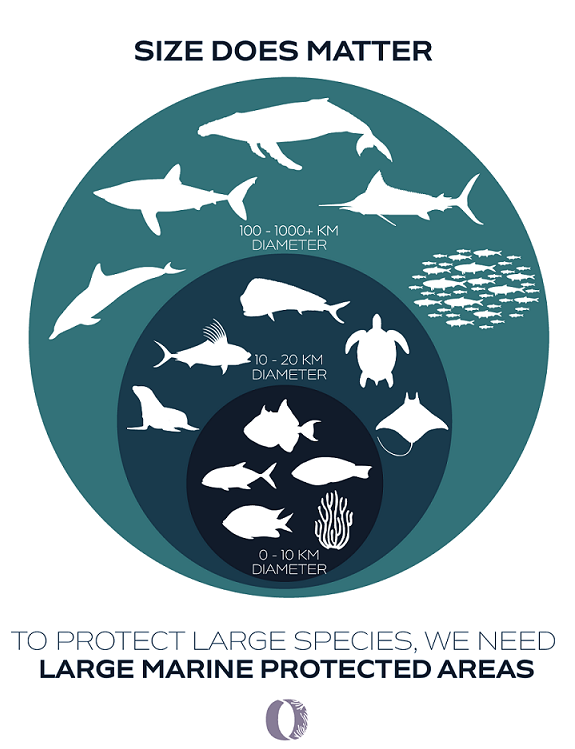
Other objectives include protecting the area through conservation components, creating a management plan for tourism, developing science and research initiatives to understand the needs and status of the area, and improving the communication network between communities and socializing the information generated.
In an article in Vogue magazine, Porfiria Gómez said, “Our purpose is to conserve and protect, to analyze problems, and look for solutions. The shark is a species in collapse.”
Initially, many locals viewed researchers with suspicion and were reluctant to cooperate with ORGCAS. After a lengthy dialogue, they were able to work out a solution that ensures the sustainability of both the sharks and the families in the area.
“Tourism is a great alternative to bring people into this project,” says Gómez. “Today, whoever is not aware that the sea is threatened for various reasons is part of the problem. We need to be aware that the sea needs us and that there are things we can all do.” Proyecto Tiburón has obtained funds to donate at least two pangas to the fishermen of this community to help them transition to an economy based on sustainable tourism.
Currently, at least 36 percent of the 1,200 species of sharks and rays are at risk of extinction, according to World Wild Fund (WWF) data.
Among the ORGCAS women, a focus on data is as important as their actions. “Conservation needs trained people,” says Gómez, whose family background is in marine conservation. “Sharks are a keystone species that play an important role in their ecosystem; they keep other species in balance,” she says.
Warnings about the dangers that sharks face are far from new, with the scientific community having sounded the alarm for decades. This led ORGCAS to take an educational approach to combating these threats, with a particular emphasis on responsible tourism. “One of the main dangers to the sea is the fishing industry,” says Gómez. “But it is important to differentiate between commercial and artisanal fishing.”
In Mexico, small-scale shark fishing continues to be a tradition of native communities; for decades, it has been the primary source of income for entire families. The ORGCAS team brought Proyecto Tiburón—or Project Shark—to local fishermen. They reached out to the last shark fishermen in the area to propose a transition to sustainable tourism.
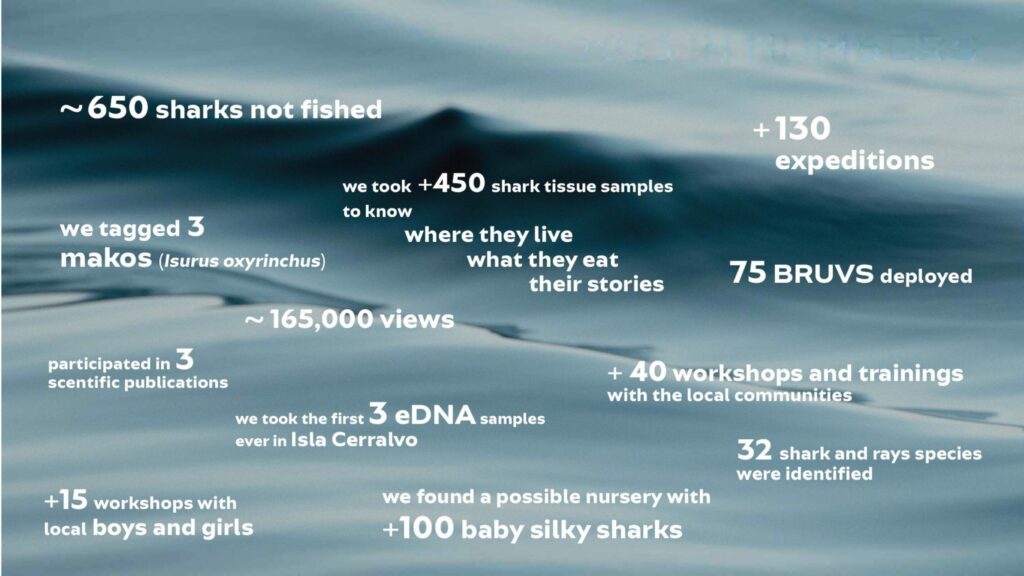
“A combination of things worked in our favor; a need combined with a vision on our part,” Gómez says. With the decline of shark populations due to industrial overfishing evident—sharks and rays are slow-growing animals and don’t reproduce until they are quite old—the region’s fishermen had noticed an instability in this source of income from season to season.
Dynamite fishing, underwater mining, and unchecked tourism and development are other major threats to the sea and these species.
One of ORGCAS’s most ambitious goals is the creation of a nature reserve along the area’s Pacific Coast and the Gulf of California. “With the help of the fishermen, we are trying to promote the protection of this area and thus regulate activity, prohibit underwater mining, limit industrial shipping to certain areas, and protect more and more of this area,” Gómez told Euronews.
Sharks play an essential role in the ecosystem as they control their prey’s distribution, abundance, and diversity. They also indirectly support the growth of ocean plants by controlling populations of sea creatures that feed on them.
According to the World Wildlife Fund (WWF), there are over 500 species of shark worldwide. The IUCN Red List of Threatened Species states that over 143 of these species are in serious danger of extinction and are considered vulnerable to critically endangered.
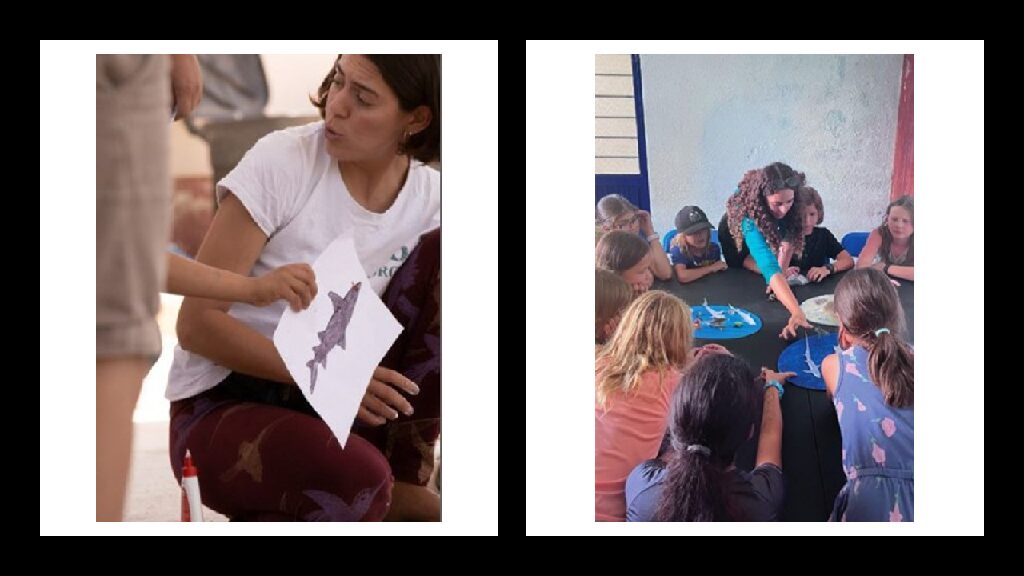
“Seventy percent of the shark population in Baja California is already gone. We already have locally extinct sharks such as the Great Hammerhead and the Oceanic White Tip Shark that are almost gone too,” says Frida Lara, scientific coordinator at ORGCAS. “If we don’t do something now, it will be too late for shark populations to recover,” she adds.
ORGCAS is helping fishing communities transition from catching sharks to becoming tourist hubs for shark-related experiences. They are working in Agua Amarga, a small fishing town with a population of 500 people, training fishermen to tag the sharks instead of killing them so that they can have an extra income and eventually phase out shark fishing,” adds Lara.
ORGCAS has gained the trust of the fishing community in Agua Amarga and is helping to increase local shark populations. They are also broadening their horizons to cover the whole peninsula of Baja California, protecting its ecosystems at large.
They want to extend their efforts further by providing opportunities for involvement through both tourism expeditions and volunteer programs. Designed to vary in terms of duration, focus areas, and prerequisite experience, these programs are developed to engage a diverse audience through inclusive and accessible spaces. By offering a variety of openings, they hope that a wider audience will witness and engage with marine conservation going forward.
ORGCAS Social Media
Instagram: https://www.instagram.com/ORGCAS
LinkedIn: https://www.linkedin.com/company/orgcas/
ORGCAS is being helped by Genesis Digital with storytelling, marketing initiatives, social media, tourism development, and other projects.
